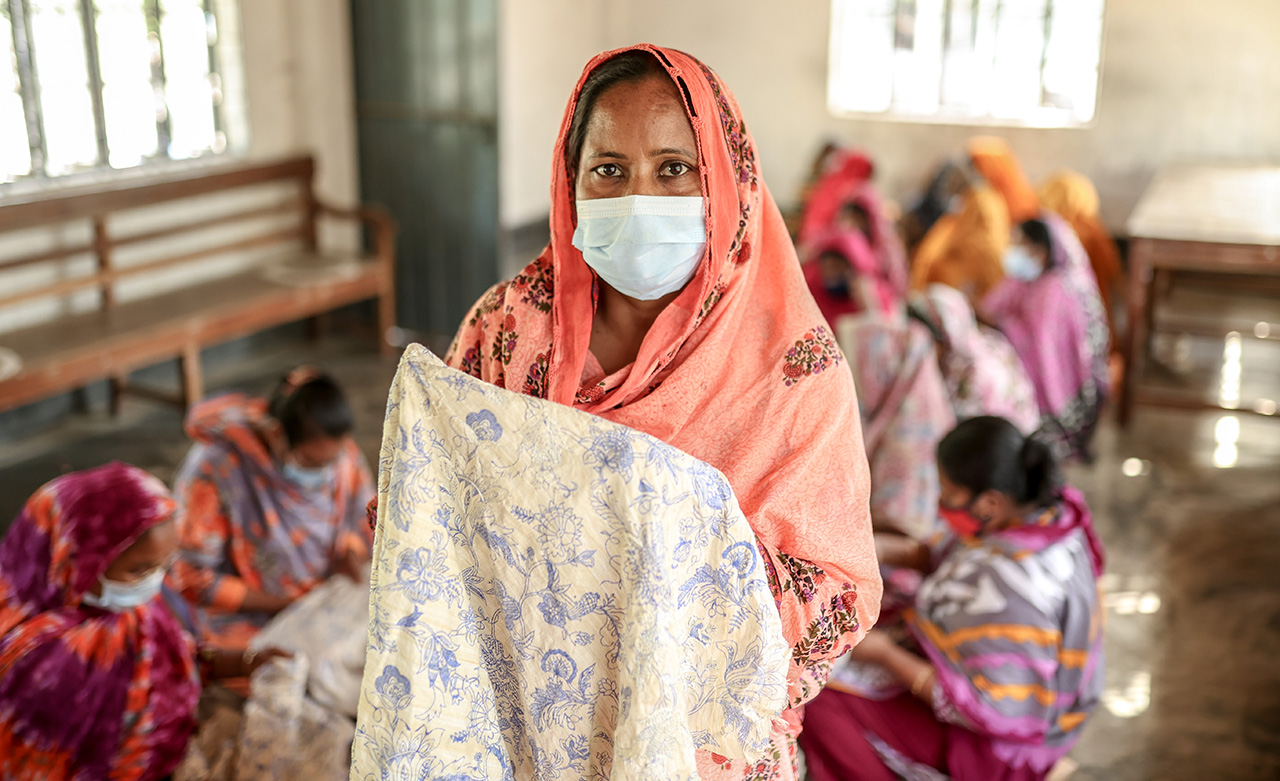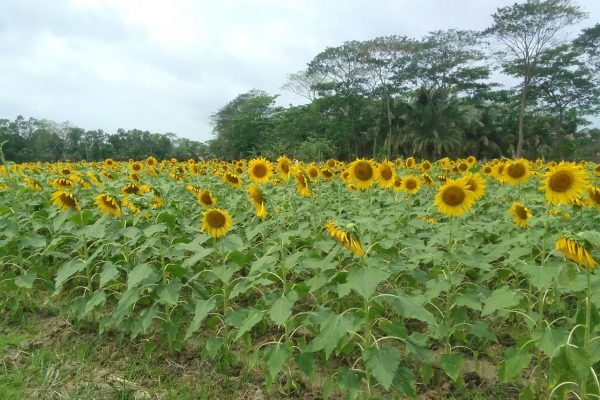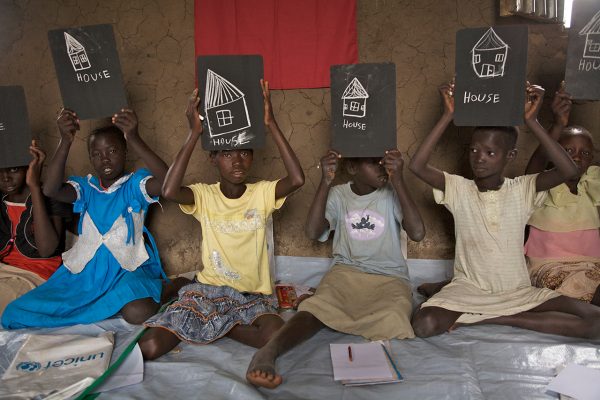On International Women’s Day, meet one of the women behind your Aarong saree
Reading Time: 3 minutes
Many women in Bangladesh woke up this morning, draped a saree and went about their day. For women living in rural areas, the saree was likely worn as an everyday item of dress, and for women living in urban areas, the saree could have been worn to a special occasion for International Women’s Day. Today, we share the story of one of the women behind those sarees.
A few kilometres away from the Jamalpur town lies the quaint village of Koltapara, where, overlooking a pond, stands one of the sub-centres of the Ayesha Abed Foundation.
Kasmin Jahan enters a room, casually walks around, guiding 40 women who sit in circles, embroidering designs on silk sarees. She is the person-in-charge of that sub-centre, one of the 703 located throughout rural Bangladesh.
Kasmin Jahan is a single mother, and a survivor of domestic violence. Her husband subjected her to physical torture and mental trauma, and then, three months later, he filed for a divorce, leaving her alone to raise their three-year-old daughter without any child support.

In Bangladesh, up to 70% of women experience domestic violence in their lifetime. Globally, 35% of women are subjected to domestic violence by an intimate partner.
After the divorce, Kasmin took legal actions against her husband with the help of her father. It merely resulted in a slap on the wrist for him. She had no means of income, and could barely provide for her child.
Her family supported her with their limited resources, but Kasmin needed to stand up on her feet to provide a stable home for her daughter. With little education and no prior work experience, getting work was not easy.
She was reached out to by the Ayesha Abed Foundation (AAF), who offered her work at one of their sub-centres. She had little idea about the institution, and she had never heard about Aarong before. But she was an expert in sewing and embroidery, and had a knack for managing things.
The Ayesha Abed Foundation was established in 1983, in memory of the late Ayesha Abed. She was an instrumental figure in BRAC’s history, and the person behind the birth of Aarong.
The foundation’s aim is to promote the employment and empowerment of rural women in Bangladesh, and it is the backbone of Aarong.

At the sub-centres like the one where Kasmin works, women from marginalised and hard-to-reach communities gather and craft on products which are later sold by Aarong. The finished products are collected by the foundation from its 703 sub-centres located across the country, which are then sent to the 21 Aarong outlets countrywide. As of 2021, Aarong offers international shipping in the United States, spreading the handcrafted heritage of Bangladesh abroad.
Fifty percent of the surplus from Aarong’s sales is allocated to fund BRAC’s other development interventions. Besides earning a steady income while working at the foundation, artisans also receive benefits including access to finance, healthcare and family planning, education for children and free instalment of sanitary latrines for those who cannot afford to do so.
There are over 65,000 rural artisans working for Aarong, and 97% of them are women.
The sub-centres are community-driven, and artisans have the freedom to negotiate their work conditions. All 703 sub-centres across the country are managed by women, who undertake regular training on leadership and safeguarding. Kasmin’s life now revolves around her sub-centre and its staff. Her daughter has grown up, is studying in the University of Dhaka, and the artisans have become a second family to Kasmin.
Kasmin raises awareness on child marriage and domestic violence in her community. If she learns about any prospective child marriage, she convinces parents to change their minds by explaining the negative effects on underage girls. If any of the artisans working under her are subjected to domestic violence at home, she goes out of her way to help them by talking with their families, raising awareness, and even taking the help of BRAC’s legal aid services when necessary. During the pandemic, the AAF artisans across the country received over BDT 34 million as financial support from Aarong, and Kasmin made sure all her staff received that support.
Kasmin’s strong leadership is reflected in the way the artisans look up to her.
She has created a safe space for them so they are able to reach out to her without hesitation. Kasmin’s story is not just about a job, or just another entrepreneur. Her story is about what happens when an organisation gives women the space to take control of their lives. On this year’s International Women’s Day, the BRAC family salutes Kasmin and countless other women like her who create the beautiful clothing many of us in Bangladesh are wearing today.
Miftahul Jannat Chowdhury is a Content Specialist, Lina Dilruba Sharmin is a Communication Specialist, and Sarah-Jane Saltmarsh is the Head of Programme and Enterprise Communications at BRAC.





